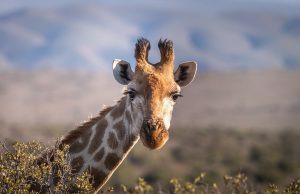
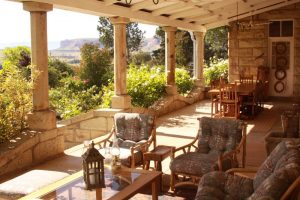 Johannesburg was chilly cold that winter morning when the Boeing 737 South African Airways plane touched down from Lagos. I was among the teeming passengers that disembarked. I took my turn through custom and immigration clearance. Soon I was in a registered airport taxi to the park station in Braamfontein. I’d catch the early-morning Greyhound coach to Grahamstown in the Eastern Cape to attend the 6th triennial congress of the Shakespeare Society (incorporating the colonial Shakespeare conference) as an independent delegate.
Johannesburg was chilly cold that winter morning when the Boeing 737 South African Airways plane touched down from Lagos. I was among the teeming passengers that disembarked. I took my turn through custom and immigration clearance. Soon I was in a registered airport taxi to the park station in Braamfontein. I’d catch the early-morning Greyhound coach to Grahamstown in the Eastern Cape to attend the 6th triennial congress of the Shakespeare Society (incorporating the colonial Shakespeare conference) as an independent delegate.
The taxi driver was a young black South African man. He must have been elated to enlighten me about the new South Africa. He began by telling me of the old apartheid era, the selfless struggles of Nelson Mandela and other ANC stalwarts that broke the shackles of racial oppression and injustice, and the freedom that eventually came in 1994.
It was in 1948, the taxi driver began, that apartheid became the official policy of the old South Africa with the coming into power of the National Party. The term ‘apartheid’ was literally the Afrikaans word for ‘apartness’. The emphasis was to segregate the races, confine them to distinct locations, in order to maintain racial purity and exclusiveness. South Africa quickly evolved into a racially stratified country with a superiority quotient that placed whites (of Dutch and British ancestry) at the apex and the blacks (the original landowners and indigenous people) at the base. Indians, Chinese and other colored people occupied the intermediate columns.
The white separatist government implored brute force to subjugate the blacks and the lesser races to conform to the established order. Some form of clandestine bio-chemical warfare was even orchestrated to control black population. The taxi driver told me of how some key actors testified at the Truth and Reconciliation Commission (TRC) hearings to deliberate poisoning of the public water system that supplied water to black townships with cultured germ strains so that debilitation and death frequently occurred among blacks. The intention was to weaken the ability of black people to resist white oppression.
I had read myself in a special edition of the BBC Focus on Africa magazine the article by Archbishop Desmond Tutu who chaired the TRC – how he gasped at how low we human beings had sunk. The grueling confessions of Wouter Basson nicknamed ‘Dr. Death’ about his activities under the infamous Project Coast were as sickening as they were frightening but forgiveness was imperative.
Tutu expressed gladness that South Africa was fortunate to have been blessed with a person like Mandela as its first black President. Despite spending 27 years in unjust incarceration for his role in the liberation struggles, he hailed Mandela for becoming an icon of forgiveness and reconciliation. Mandela invited his jailer to his presidential inauguration and had launch with the prosecutor who openly called for a death sentence to be passed on him. His recommendation of reconciliation as the natural pathway to healing the festering wounds of apartheid showed the height of human capacity to forgive their enemy instead of seeking vengeance.
The taxi driver also told me how difficult it was then for blacks to enter into white- dominated areas like Johannesburg let alone operate a taxi. Blacks needed to obtain passes in order to leave townships. They must keep to segregation laws which stated that they mustn’t enter places designated ‘for Whites only’ and that they gave up their seats for whites to occupy in buses and other public places.
I sighed at his startling revelation. I took in spells of deep breath. The sordid narration was freezing my bones. Looking at the taxi driver, he immediately struck me as an industrious man working hard to make ends meet in a liberated South Africa. It was not yet uhuru. He had yet another shackle to break – economic hardship – which has now gripped the country. I’d come to know that South Africa had one of the highest incidence of mass unemployment on the Continent. Whites still had the economic power even though political power now resided with the blacks. His taxi was leased out to him by a white proprietor; he tolled hard to make daily returns. Otherwise he’d defaulted the terms of agreement which could land him in serious financial jeopardy.
He became quiet for awhile, probably to allow me view the aesthetic Johannesburg landscape with its rich infrastructural opulence as we pass through the neighborhoods. Then he asked where I came from. He must have meant my nationality. I told him that I was a Nigerian, a proud Nigerian. Was it the adjective ‘proud’ I used in qualifying my nationality or the mere fact of being a Nigerian that trigger the anger in him? I wasn’t too sure. But he burst out in enraged xenophobic anger, “So you’ve come to join the bandwagon of your countrymen who spoil our country, not so?”
“Excuse me…” I protested lightly. He interrupted me abruptly, apparently in irreversible anguish, “You people take our precious jobs, steal our women and criminalize our neighborhoods. We won’t let you take over South Africa!”
“I’m a tourist. I’d be here for a brief while only.” I replied softly. That didn’t pacify him. “I’m a tourist. I’d be here for a brief while only,” he repeated in a nasty manner. Then he asked ruefully, “Isn’t that what you all say when you first come here?” He paused for a while, and then vomited, “Tell that to the dogs. We’ve discovered your tricks. We’ll chase you out!”
Finally we got to Braamfontein. He pulled the vehicle to a halt. I hurriedly handed him the fares which he collected with rude force, hurting my hand in the process. He slammed the door hard as I came out, pointing his fingers frantically at me, “Hear me, and hear me well, South Africa belongs to us South Africans. We took our chance with the early white men who came here and we are worst for it today. We won’t take any silly chance with you. We will chase all of you out!”
He hissed aloud and muttered the word ‘kwere-kwere’ which I later came to know was a derogatory name for a foreigner or something worthless. I left with a bruised pride but was happy he didn’t attack me. As I later came to know xenophobia attacks, some resulting in untold death and injuries, was becoming accentuated in Johannesburg and other commercial parts of South Africa.
It baffled me how a person who had just finished telling a story of racial hatred and oppression, while condemning it vehemently, would almost immediately adorn the same character of the oppressor. Where was the notion of black solidarity in the man’s heart? What happened to the African brotherhood and togetherness which pan-African leaders like Kwame Nkrumah, Jomo Kenyatta, Julius Nyerere, Nnamdi Azikiwe, Nelson Mandela and others so passionately preached? These disturbing questions raced through my reverie.
That was not to defend my country men. That wasn’t the point. In reality, the foreign media were awash with news reports of the nefarious activities and atrocities some unscrupulous Nigerians were perpetrating. Nevertheless, it was absolutely incongruent for the taxi driver or any other person to extrapolate and generalize that every Nigerian entering the republic of South Africa had the surreptitious intention to stay back or take precious jobs, steal women, or even criminalize neighborhoods.
Anyway, I quickly discountenanced the taxi driver’s behavior as irrational. I’d determined to enjoy my travel which was costing me so much and couldn’t allow this ill-fated encounter to derail me. I walked into the park station, located the Greyhound section, bought my ticket and in another 30 minutes was on my way to Grahamstown. The journey lasted ten hours and afforded me the opportunity to see the hinterlands. I had no inkling of the many surprising contradictions that awaited me.
Contrary to my expectation, the Congress delegates were all whites (South Africans, Europeans, Australians and Americans) except for three blacks – Dr. Thorell Thosomondo (a Jamaican-America), a fellow from Witwatersrand University and me.
I was amazed to receive extended hands of fellowship from those white people.
It wasn’t the keynote addresses, the paper presentations or the dramatized Shakespearean plays and sonnets that inspired me so much; it was indeed the comraderie and the generosity of heart of the white conveners and delegates.
Much to my surprise, Prof. Lawrence Wright, chairperson and honorary life president of the Shakespeare Society and also the director of the Institute for the Study of English in Africa, felt it necessary to come to receive me on arrival. Although he missed me (he hadn’t seen me before and couldn’t have known how I looked like), I saw the erudite scholar frantically trying to spot me out as passengers alighted from the Greyhound coach. I didn’t know him them but soon I learnt from the Congress convener Hilde Slinger that he’d indeed been to the last Greyhound coach stop to pick me.
Even at the Canterbury Hall where I stayed, the hall warden Desiree was extremely hospitable. She was kind enough, in spite of her very tight schedules, to have read through one of my literary work and to render her feedback. The reading suddenly sparked an interest in West African peoples and cultures. I fielded questions from her and answered them satisfactorily. I was able to sell the doctrine of African renaissance to her. She found that endearing and quickly gave up the negative stereotypes she held about West Africans staying in South Africa whom she erroneously thought were all drug peddlers, advance fee fraudsters, passport racketeers, diamond smugglers, and so on.
Alan Bamford, one of the delegates, took me round Grahamstown after each day’s session. Together we visited the 1820 Settlers Monument where a curator told a gathering of tourists the history of the small military town which was the scene of the famous Anglo-Dutch war. The high point of our tour was the visit to the office of the Mayor of Grahamstown. I was surprised about how simple and easy it was to see a politician of the Mayor’s caliber even without any pre-scheduled appointment. In the country where I came from, it was as difficult as passing through the eye of a needle for any one who was not a politician or a VIP to attempt to see the Chairman of a local government. The protocols were suffocating; you required connections in high places to succeed.
Those discoveries in Grahamstown had greatly inspired me to practically show love to all humankind without regard to race, ethnicity or creed. I was wrong to think that it would be from my fellow black brothers that I would find love and succor. It dawned on me that the much-wanted love and succor came not from them but from the whites whom I’d always regarded as colonialists and neo-colonialists. If you knew Nigeria’s educational system in those days, then you understand that the orientation was to teach the pupils and students during history classes that the British imperial masters plundered Nigeria’s mineral resources for their own selfish aggrandizement and were responsible for the country’s economic downturn. We took it hook, line and sinker.
That was not in any way to support unregulated migration to South Africa which meant stiff competition with the locals for the (scarce) limited economic resources in the land. Black South Africans have an immutable right to protest. That right of protest, however, must be within the confines of national and international laws. Also the blacks had to clearly distinguish between tourists and immigrant settlers. Attacking genuine tourists and visitors meant shooting themselves in the foot as travel and tourism are direct sources of foreign exchange and employment for both blacks and whites in the rainbow nation. As a parting shot, it was the Xhosa word ‘ubuntu’ that was my greatest source of inspiration. To paraphrase the meaning, it meant your world influences mine just as my world influences yours. Let us live together as one, understanding and tolerating one another.
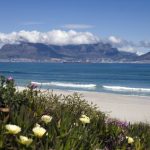
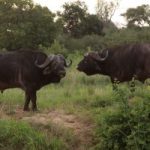
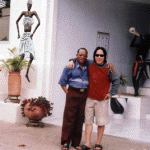


Leave a Reply